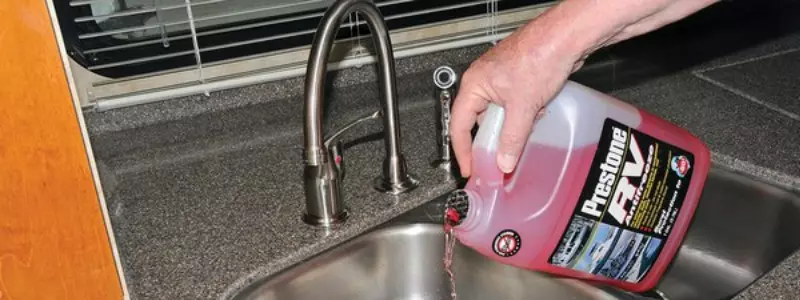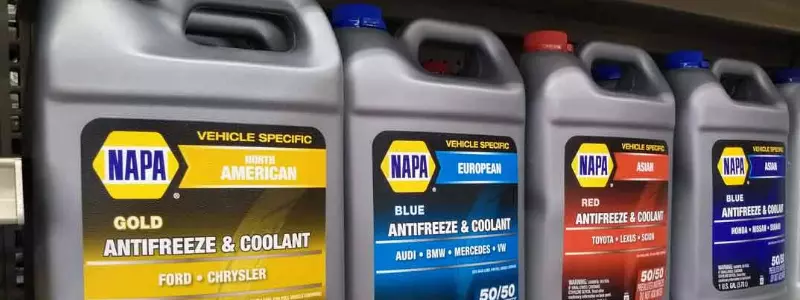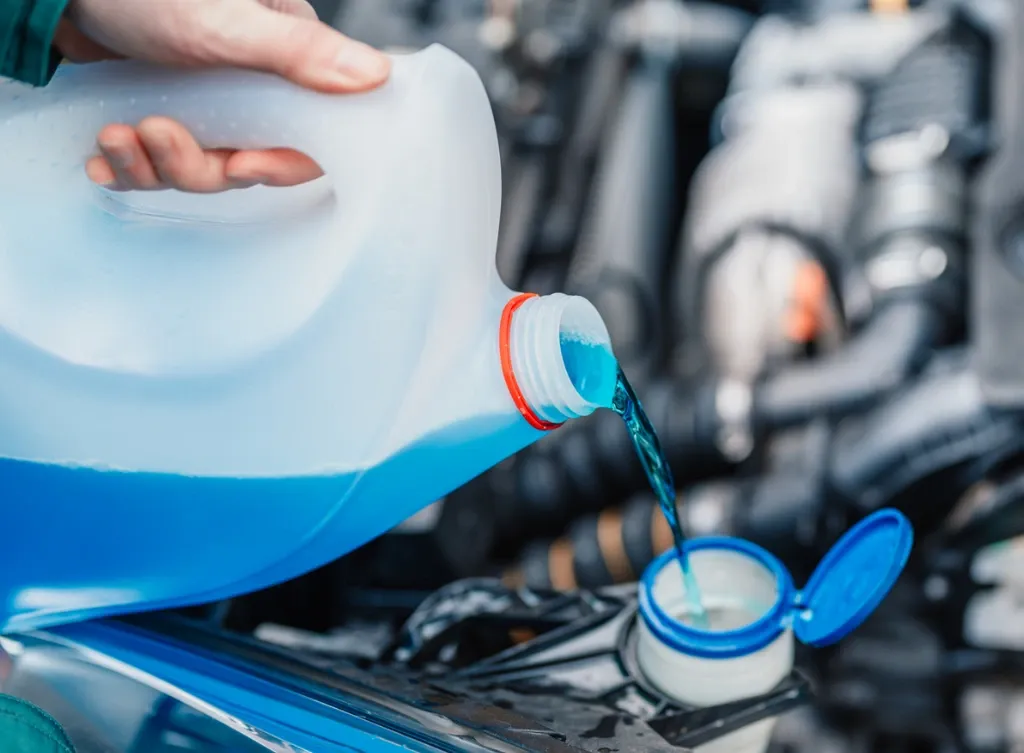What is Antifreeze?
Antifreeze is an additive which when combined with water-based liquids lowers their freezing point. It's used in things such as engines that may come into contact with colder weather. The low temperatures can cause the water to freeze. Making it unable to run through the machine correctly, causing it to break. With the use of antifreeze it stops this from happening.
Disposing of antifreeze
Antifreeze is a chemical, it is therefore important for it to be disposed of in the appropriate manner. Here are some important things to consider when disposing of antifreeze:
Can you pour antifreeze down the drain?
It is not safe to pour antifreeze down the drain or toilet; in particular ones containing ethylene glycol. As it is a toxic chemical that can pollute waterways.
Further down this page you can read about the different types of antifreeze and how they affect the environment.

How do I dispose of antifreeze near me?
You should find your local hazardous waste or recycling centre. Check on their website first to make sure they are able to accept it. If they can't, they will be able to direct you to a place that can.
Alternatively, take it to an auto parts shop or servicing garage. They dispose of these sorts of liquids regularly and should be able to help you. They may however charge you for disposal.
Transporting antifreeze
When transporting the liquid, make sure it is in a well-sealed container. Some antifreezes contain toxic chemicals , which over time, can contaminate or corrode surfaces, skin and soil. So it is important to avoid any leaks or spillages.
Is antifreeze and coolant the same thing?
Coolant is the name referring to a diluted form of antifreeze. Usually a 50:50 ratio solution made up of water and antifreeze. A common place you would use coolant is in a car. Water is needed within a car's engine for it to run. However if the water were to solidify in colder temperatures it would cause the engine to seize up. You therefore add the antifreeze to avoid this from happening. You can purchase the antifreeze separately and add it to water. Or there are premixed solutions available. You can find a list of coolant options at the bottom of this article.

How to dispose of coolant?
If you are looking to dispose of antifreeze or old engine coolant, it should be treated the same.
Although coolant is a diluted solution of antifreeze, it is still considered to be a hazardous chemical waste product. Used coolant can be even worse, as it contains heavy metal contaminants. It picks these up whilst working in the engine. It, therefore, does also need to be handled with care and disposed of correctly.
Use the same methods for coolant; as the ones stated above for disposing of antifreeze.

Antifreeze and the environment
Antifreeze is no doubt a useful tool when it comes to machinery. Being able to avoid the breakage of any machinery in cold weather is a great asset. Antifreeze is however a chemical which can be harmful to the environment. There are two main types of antifreeze ethylene glycol and propylene glycol. One is substantially worse of the environment than the other.
Ethylene Glycol is listed as a toxic chemical and is the considerably poorer choice when it comes to antifreeze. This type of antifreeze is more harmful to you and the environment. Fortunately there is a more eco alternative in propylene glycol. It is considered to be non-toxic and even food safe. Its ability to be readily biodegradable means that in controlled quantities; it will not have a negative effect on the environment.
Also look for antifreeze containing OAT (organic additive technology) which only contains organic corrosion inhibitors.
Is propylene glycol environmentally friendly?
As it has not been scientifically proven we cannot say it is definitely environmentally friendly. But it is a much better alternative to ethylene glycol. When making a choice of which coolant to use in your car, propylene glycol is by far the preferred choice. So if you haven't managed to get your hands on an electric car just yet. At least you know that by using propylene glycol you are doing your bit.
In conclusion
We have discovered that actually we do have an eco-alternative to at least this one component of our not so eco vehicles. Always choose to use coolant containing propylene glycol. And when it comes to needing to dispose of it, do so correctly at a facility that will handle it for you.










